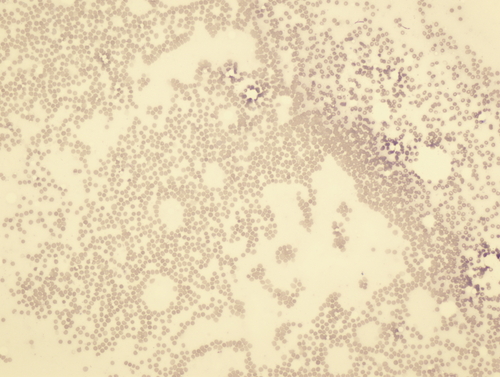
Transfusion independence response (TI-R) on pacritinib was linked to bone marrow reticulin fibrosis (BMF) improvement in patients with myelofibrosis (MF), according to a study presented at the 65th ASH Annual Meeting & Exposition, which is taking place December 9-12 in San Diego, California.
In the PERSIST-2 trial, Stephen T. Oh, MD, PhD, and colleagues analyzed 41 patients on pacritinib (median dose intensity, 100% through week 24) and 18 on ruxolitinib (median daily dose, 10 mg at week 24).
According to the results, a greater proportion of patients treated with pacritinib achieved TI through week 24 compared with those treated with ruxolitinib (37% vs 6%, respectively; P=.023). The researchers noted that this trend held for those with baseline platelets <50 x 109/L (28% vs 8%, respectively; P=.222). Moreover, a greater percentage of patients treated with pacritinib achieved a 50% reduction in red blood cell transfusions over any 12 weeks compared with those treated with ruxolitinib (49% vs 6%, respectively; P=.001).
“In cytopenic MF patients from PERSIST-2, TI-R on pacritinib was associated with BMF improvement,” the researchers concluded. “While differences in study design could have impacted these results, these findings suggest that distinct inhibitory profiles may further distinguish the clinical impact of these treatments.”
Reference
Oh S, Shammo J, Gupta V, et al. Retrospective analysis of the relationship between transfusion independence and bone marrow fibrosis reduction in patients with myelofibrosis treated with pacritinib versus ruxolitinib. Abstract #4566. Presented at the 65th ASH Annual Meeting & Exposition; December 9-12, 2023; San Diego, California.







 © 2025 Mashup Media, LLC, a Formedics Property. All Rights Reserved.
© 2025 Mashup Media, LLC, a Formedics Property. All Rights Reserved.